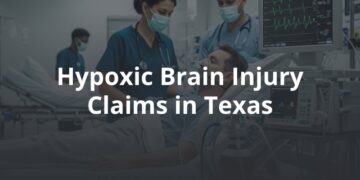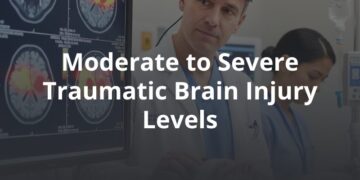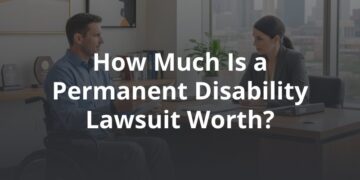When it comes to safe driving, Austin has a poor reputation. According to data from the Texas Department of Transportation, Travis County was one of the top offenders for car accidents in 2016 with over 20,000 collisions — almost half of which resulted in injuries or fatalities.
Austin also scores poorly for drunk driving. According to Quote Wizard, a site that allows consumers and agents to compare insurance rates, Austin is the worst city in Texas for DUIs. There are about 5,000 to 6,000 drunk driving arrests here on average each year, but in 2017, there was a 70 percent increase in alcohol-related deaths.
It’s clear that Austin roads aren’t particularly safe. But there are some times when driving on them is distinctly more dangerous. Here’s when you’ll want to be extra careful when driving in our city.
Evening Rush Hour
It’s no big secret that the pre-and post-work rush hours are dangerous times to drive. The increased congestion and aggressive driving that come with the territory all contribute to a higher likelihood of accidents. But it’s evening rush hour traffic — between 4:00 p.m. and 6:59 p.m. — that sees the most accidents, rather than the morning hours.
A study from AVVO examined national crash fatality data from 2016 and found that the evening hours were by far the deadliest times to drive, with 6,201 accident fatalities between 4:00 p.m. and 6:59 p.m., and 6,067 between 7 p.m. and 9:59 p.m. That trend holds true in Austin as well, where the 6:00 and 7:00 p.m. hours are some of the most dangerous times to drive.
Between 2:00 and 3:00 a.m.
According to the City of Austin’s 2012 Traffic Safety Report, the hour just after bars close is by far the most hazardous time to drive in our city, with almost double the average number of fatalities and serious accidents than any other hour of the day.
This seems to suggest a strong correlation between Austin’s busy nightlife scene and serious car accidents in the city. The Austin Police Department’s 2017 Annual Crime and Traffic Report reveals that drunk driving is a factor in a third of all fatal crashes in the city. That finding echoes trends in the state of Texas at large: according to the CDC, there were 13,138 drunk-driving-related fatalities on Texas roads between 2003 and 2012.
The rate of drunk driving fatalities in the Lone Star State is much higher than it is in the nation at large. For instance, in Texas, there were 4.9 drunk driving deaths per 100,000 people, compared to the national rate of 3.3 deaths. The bottom line is that if you want to stay safe in Austin — and Texas in general — it’s a smart idea to avoid driving in the wee hours of the night.
During South by Southwest
Most people in Austin remember the tragic accident that occurred during SXSW in 2014, where a car barreled through a barricade downtown, killing four people and injuring many more. That incident highlighted something most Austinites already knew: city roads are much more dangerous during the festival.
Austin EMS says it sees an increase in calls during SXSW; in 2019, it responded to 153 incidents in just five days of the festival. And the introduction of scooters downtown has only added new risks to the dangerous SXSW cocktail. In March 2019, the first SXSW since scooters landed in Austin, Austin’s KXAN cameras reportedly caught many individuals misusing scooters: riding the wrong way down one-way streets, riding two to a vehicle, and scooting at high speeds down crowded sidewalks. City officials say it is “stunning” that no one was injured by scooters during the event. So if you want to stay safe, it’s best to avoid driving in downtown areas as much as possible during SXSW.
Weekends
There’s a theory that reckless driving behaviors increase proportionally with the amount of personal freedom drivers experience — that is, accident rates tend to rise on weekends, holidays, and after work, perhaps because drivers feel freed from the constraints of the workday. Weekends, in particular, are a hazardous time on roads across the US, Austin included. National traffic data from 2016 shows that by far the most accident fatalities occur on Friday, Saturday, and Sunday, with 5,826, 6,802, and 5,809 road deaths respectively, compared to fatality counts in the sub-4,000s for the earlier part of the week.
It’s no different in Austin, where the start of the weekend marks a rise in accident deaths. Sunday is typically the worst day; in 2012, there were 22 fatalities that occurred on Sundays, 18 of which were alcohol or drug-related.
Those rates contrast sharply with the middle of the week: for instance, there were just four deaths on Thursdays, three of which involved impaired driving. The majority of Sunday road deaths occurred in the early morning, which again illustrates the effects of alcohol on our city’s accident rates.
The best way to avoid accidents is to minimize driving during these high-risk times. Of course, that’s not always possible. You can protect yourself using defensive driving: stay alert, follow traffic laws, and leave some distance between your car and the vehicle in front of you. Give yourself enough time to get to your destination so you won’t be tempted to speed or drive aggressively.
No matter how carefully you drive, it’s not always possible to avoid a collision, however. If you have been in a serious accident, it’s wise to contact an Austin car accident lawyer like FVF Law to learn what you can do about it. Our Austin personal injury lawyers can help you understand your options with a free case evaluation. Contact us today to learn more.








